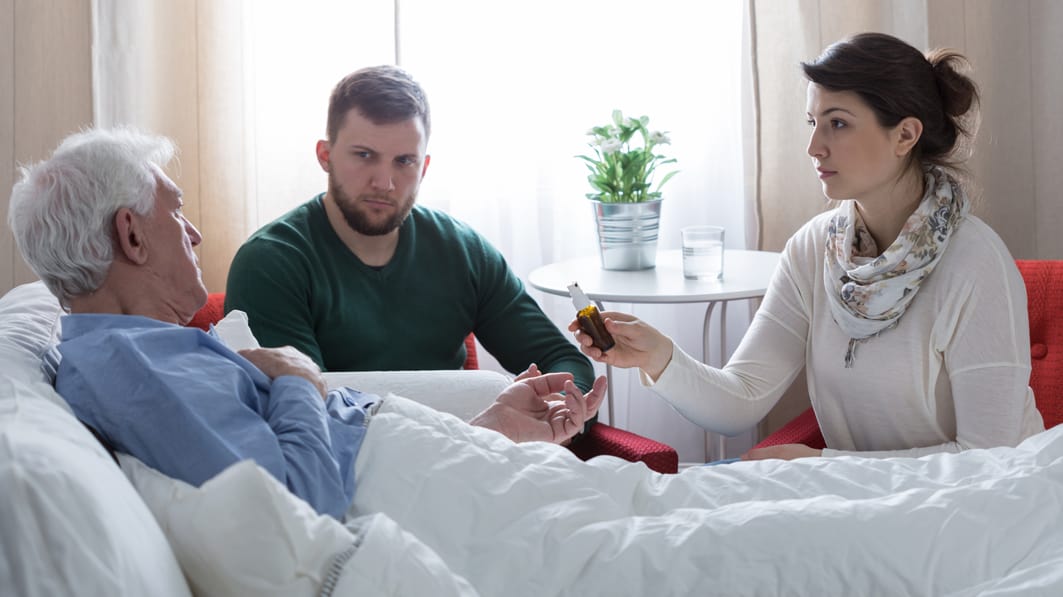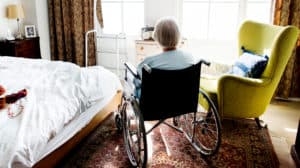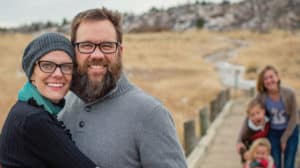Whether in the midst of famine, war or disease, the early Christian church often ministered to the vulnerable at the risk of their own lives. Later on in history, believers helped establish the first hospitals and hospices.
The modern hospice movement – the root word for hospice is “hospitality” – was founded by Anglican nurse, social worker and writer Dame Cicely Saunders, who opened St. Christopher’s Hospice in the United Kingdom in 1967. Saunders advocated caring for the whole person – physical, emotional and spiritual – at the end of life.
As a general rule, hospice provides care for those diagnosed with six or less months to live. Hospice takes a team approach: Patients and their families might have a doctor, nurses, nurses aids, social workers, counselors, chaplains and even a bevy of volunteers at their service. Hospice focuses on symptom management, especially pain control, and care is provided where the need exists; most often in a patient’s home or at a care facility.
Ending Life Well
“We don’t talk about death,” says Amy Mussleman, a Cincinnati-based hospice nurse. “People are afraid of it, evidenced by crazy end-of-life interventions that have little to no benefit. We used to have our loved ones pass away at home, and life would go on around them while they died. Passing was a part of living, now it’s something to be dreaded.”
Fear and dread about dying are widespread, even among Christians, and hospice is a port in the storm at the end of life. A main benefit is pain and symptom control, which helps patients to wrap up life well. Conversation is another key component of the hospice process.
“I tell my families, ‘Your dad is dying and you’re going to live on,’ ” Amy says. “ ’You don’t want to live with any regrets down the road, like, “Why didn’t I say that or do this when I had the chance?” Now is the time to make things right.’ ”
Amy also mentions setting goals. She tells the story of one young dying mother who was determined to attend a wedding in California and take her daughter to Disney World. Thanks to effective pain management, both goals were met.
“She got off the plane from the wedding, walked into hospice the next day, and said, ‘Amy, I’m done.’ Two days later she died.”
‘There Was Peace’
Paul, who, along with his wife, Julie, cared for his dying father at home, received much-needed information about the process from their hospice team. The team helped identify when the end was near, so that Paul could gather together family from across the country. Paul’s father’s dying wish was a Hollywood-like experience where family surrounded his bed as he took his last breath.
“In retrospect, you don’t see the slow fade because it’s right in front of your face,” Paul says. “When my dad took that final turn, our hospice nurse had a frank and honest conversation with us. She said my dad might be hanging on, waiting for my siblings to come back.
“I don’t know how to reconcile the spiritual with the physical, but when she proposed the idea that everybody come back for a final visit, I thought, ‘Let’s give it a shot.’ We landed on a date and told my dad, and then he kept asking, ‘Now when is everyone coming?’ ”
At some point Paul said, “Next Friday, Dad.” It was at that point, he says, that his father began to actively deteriorate. His four other siblings arrived by 4 o’clock on a Friday afternoon and his father died at 11 that night.
“It was everything he could have hoped for,” Paul says. “His five-year prayer since my mother passed was to die surrounded by family – his death was like God’s last gift to him and to us. We had the hospital bed in the sunroom, a beautiful room with big windows. And one of those crazy spring snowstorms blew in after a beautiful Colorado morning.”
The family surrounded his bed, the snow swirling outside.
“He squeezed our hands but could no longer talk. We shared memories. We prayed with him. We sang his favorite hymns together. And we played a recording of him talking about his life from years ago that my siblings and I had never listened to. He sounded strong, just as we remembered him.
“After he passed, my brother turned off his oxygen machine that had rumbled in our house for months and there was just peace.”
Acts of Kindness
Sometimes it’s the little acts of kindness in the midst of a crisis that people really remember. From a hot meal and childcare to housecleaning or lawn maintenance – all serve to remind a patient and his or her family that they are not alone. At the end of life, friends and neighbors often serve as God’s hands and feet.
Kathy’s mother took a turn for the worse after a long bout with cancer. After a middle-of-the-night respiratory attack, she was taken to the hospital, then moved to a hospice facility.
“We both knew she was not going home,” says Kathy. “It was hard leaving her beautiful apartment behind. I don’t think that was her plan.”
Kathy in particular recalls her mom’s love for the Milwaukee Brewers and their run for the playoffs.
“When we arrived in the [hospice] room, we noticed a TV but no cable. My mom said, ‘You have to order cable.’ The chaplain was with us and figured out what to do. It was the most practical thing he could have done in the moment.
“She wasn’t just a patient in a room – she was Arlene, who loves the Milwaukee brewers. That was our first impression of hospice.”
Kathy says hospice took care of basic needs so that her mom could focus on finishing life well. This included her decision to give away a lifelong collection of prized elephant figurines to family, friends and everyone who visited.
“Because of hospice, she had a chance to control things like that,” Kathy says. “She had come to a place of peace that the end was near and, because of Jesus, it really was OK.
“My mom was always a generous spirit, and now when I see the elephant she wanted me to have, it gives me joy.”
The day her mother died, Kathy had briefly left the room to mail some packages. When her phone rang, she somehow knew what had happened.
“[The hospice worker] didn’t say ‘Your mom is dead,’ ” Kathy recalls. “She acknowledged our faith in Christ, of Jesus’s rescue of my mom. My mom stopped breathing here and started breathing in heaven. She was never dead.
“That’s why I love hospice – because they know what they know about the end of life, and I was honored in that moment.”
The Space Between Heaven and Earth
Those who’ve sat with dying loved ones – those who work or volunteer for hospice – know the sacredness of the distance between heaven and earth.
“Those who have a strong faith tend to be more at peace at the end,” says Heather Meyerend, a longtime hospice nurse. “They know where they’re going.”
Heather’s advice to the living?
“Ask yourself: Am I fully living? Am I loving God? Worshiping Him? Think about your dying while you’re alive and well.”
Heather and Amy are among many believers who work for secular hospice organizations. Many Christians feel called to this work as either a profession or as volunteers, and those who commit their lives to this ministry are following in the tradition of the early church.
In every era, Christians have been witnesses for Jesus in the midst of nonbelieving communities – through acts of courage, charity and mercy. Believers recognize the biblical admonition to step up and care for their vulnerable neighbors, especially those on the edge of death.
Indeed, one of the best ways to learn the value of life and living it to the fullest is by immersing yourself in another’s journey at the end.



















